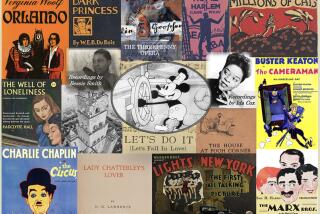Free Sherlock? Holmes scholar challenges Conan Doyle estate

The greatest detective in the world has, for more than a century, been under the protection of Arthur Conan Doyle and that author’s heirs. But one scholar believes it’s time for Sherlock Holmes to be set free. Long a fixture of the popular imagination, the time may have come for him to belong to the public as well.
Author and attorney Leslie S. Klinger, widely regarded as one of the foremost authorities on Sherlock Holmes, has filed suit in the U.S. District Court in the Northern District of Illinois against the Conan Doyle estate. Countless pastiches, parodies, imitations and interpretations of the four novels and 56 stories that constitute the Sherlockian canon have been made over the years; Klinger’s suit alleges that the Conan Doyle Estate is no longer legally entitled to licensing fees for the use of “Sherlock Holmes story elements.”
Klinger is the editor, along with Laurie R. King, of the recent collection “A Study in Sherlock: Stories Inspired by the Sherlock Holmes Canon” and was working on a sequel collection of Holmes-inspired fiction, including stories by Sara Paretsky, Michael Connelly and Lev Grossman, among others. According to the complaint, the Conan Doyle Estate contacted Klinger’s publisher, Pegasus Books, implying that it would prevent the collection’s publication unless a fee was paid. (In an interview with the New York Times, Klinger admitted paying $5,000 to license Holmes elements for “A Study in Sherlock.”)
According to U.S. law, copyrighted material enters the public domain 50 years after an author’s death; Conan Doyle died in 1930. Ten stories, published after 1923, remain under copyright until 2022. But Klinger’s suit alleges that the characters and story elements of the Holmes canon are set forth and developed sufficiently in the pre-1923 stories that the “basic story elements” are now in the public domain.
As Klinger stated in a news release: “This isn’t the first time the Estate has put pressure on creators. It is the first time anyone has stood up to them. In the past, many simply couldn’t afford to fight or to wait for approval, and have given in and paid off the Estate for ‘permission.’ I’m asking the Court to put a permanent stop to this kind of bullying. Holmes and Watson belong to the world, not to some distant relatives of Arthur Conan Doyle.”
Klinger, who edited a definitive three-volume collection of Conan Doyle’s stories titled “The New Annotated Sherlock Holmes,” is a member of the Holmes society the Baker Street Irregulars, in which he holds the invested title “The Abbey Grange.” BSI members play what they call “the Great Game,” a tongue-in-cheek agreement that Holmes was a real person and Conan Doyle a mere biographer. Could the recent lawsuit be a move in the game? As Holmes would say, one should never theorize without data.
ALSO:
Share your old East L.A. photos with the L.A. County Library
Jim Gavin talks about the mix of fact and fiction in ‘Middle Men’
More to Read
Sign up for our Book Club newsletter
Get the latest news, events and more from the Los Angeles Times Book Club, and help us get L.A. reading and talking.
You may occasionally receive promotional content from the Los Angeles Times.








